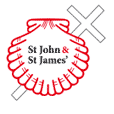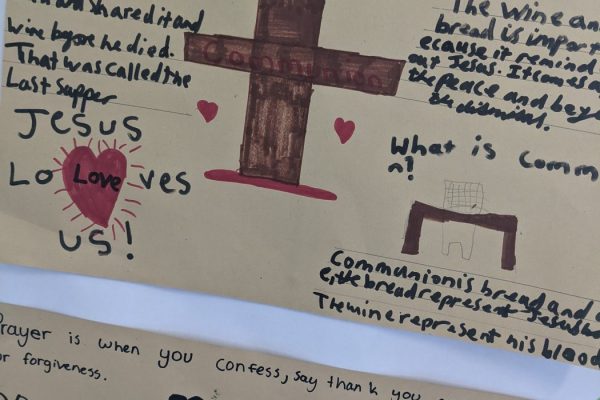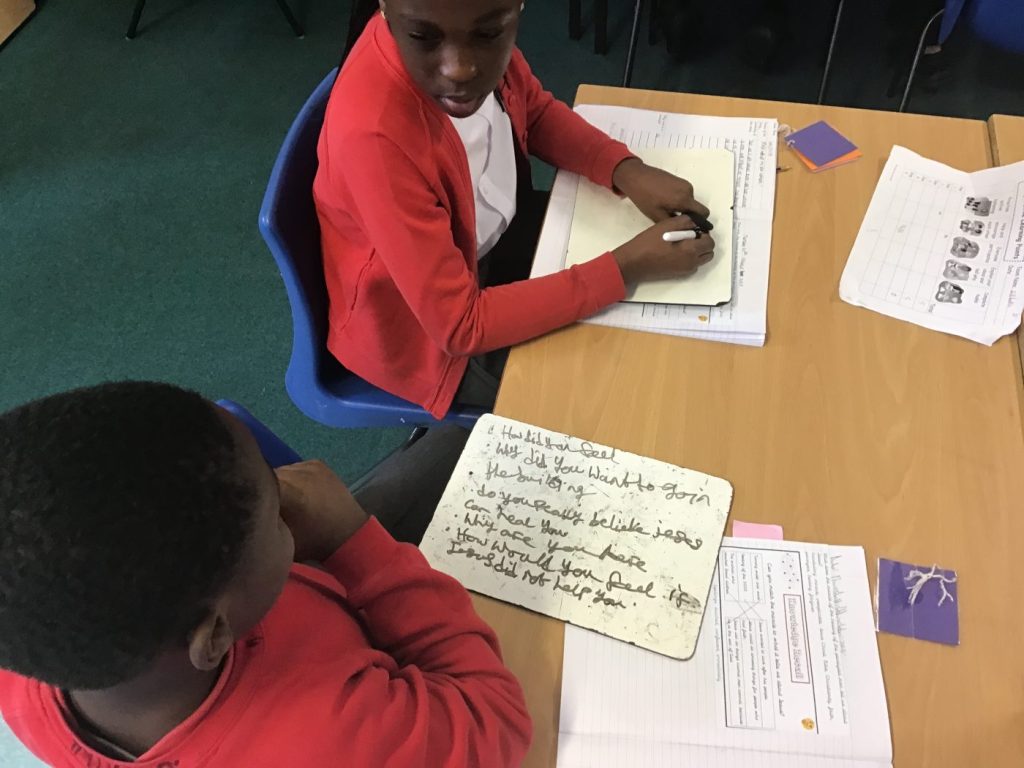Implementation
Early Years (Nursery)
In Nursery, we have a weekly RE lesson, following the Primary Advantage programme, which explores how festivals, food, clothes and symbols represent different religious cultures. In Reception, the children study Christianity, based on the London Diocesan Board for Schools curriculum. Children gain knowledge and understanding of a range of religions and worldviews appreciating diversity, continuity and change within the religions and worldviews being studied.
Key Stage One and Two
At St John & St James’, we have weekly RE lessons, through which the pupils’ understanding of religious beliefs and practices builds over time. We follow the revised London Diocese Board for Schools (LDBS) scheme.
Children will study a two-third Christianity and one-third World Faiths curriculum. The World Faiths studied include: Judaism, Buddhism, Islam, Sikhism, Hinduism and Local Faiths in our Community. Children will have the opportunity to acquire a rich, deep knowledge and understanding of Christian belief and practice, including the ways in which it is unique and diverse. Teaching and learning uses an approach that engages with biblical text and theological ideas and children have the opportunities to learn about and from religion from a variety of resources. The pupils also have the opportunities to explore their own response to profound human experiences and universal symbols, whilst being actively encouraged to respond freely to experiences and questions that have a profound or puzzling quality and to use a range of different forms of expression to convey their responses.
‘Big’ questions are asked where there is not necessarily a right or wrong answer. Our children are encouraged to share their knowledge about their own religions and how they practice them in a safe, respectful environment. Through visits to places of worship, our children learn about the significance of the places where religious communities gather to practise their faith. Our children also take part in religious debates to hone on their Oracy skills to answer challenging questions about the ultimate meaning and purpose of life, beliefs about God, issues of right and wrong, and what it means to be human.
Children attend weekly clergy assemblies that focus on the Word of the Week from our British Values and are able to make links to examples of the biblical teachings on good morals to better develop their understanding on being tolerant and understanding of others.
Impact
The impact of our RE curriculum is evident in children’s written work, drama scenes, creative work and the quality of discussions that they have. Children demonstrate their growing knowledge and understanding of religions in a range of carefully designed tasks. Over time, children demonstrate their deepening understanding of individual faiths by making connections within a faith, as well as showing their growing understanding of the discipline of RE by making links across different religions.
At the end of each unit of work, each pupil completes a form of summative assessment, whereby they answer the key question in an essay-style format. This displays each pupils’ understanding of the unit of work, as well as their ability to use key vocabulary in context. It is also an opportunity for the class teacher to assess individual understanding and plan for gaps in knowledge or misconceptions.
The impact of our RE curriculum is also evident in our children’s deep respect for one another and their attitude towards our diverse religious community. We are proud of how our RE curriculum supports children to both value difference and understand which shared values and beliefs unite us.











